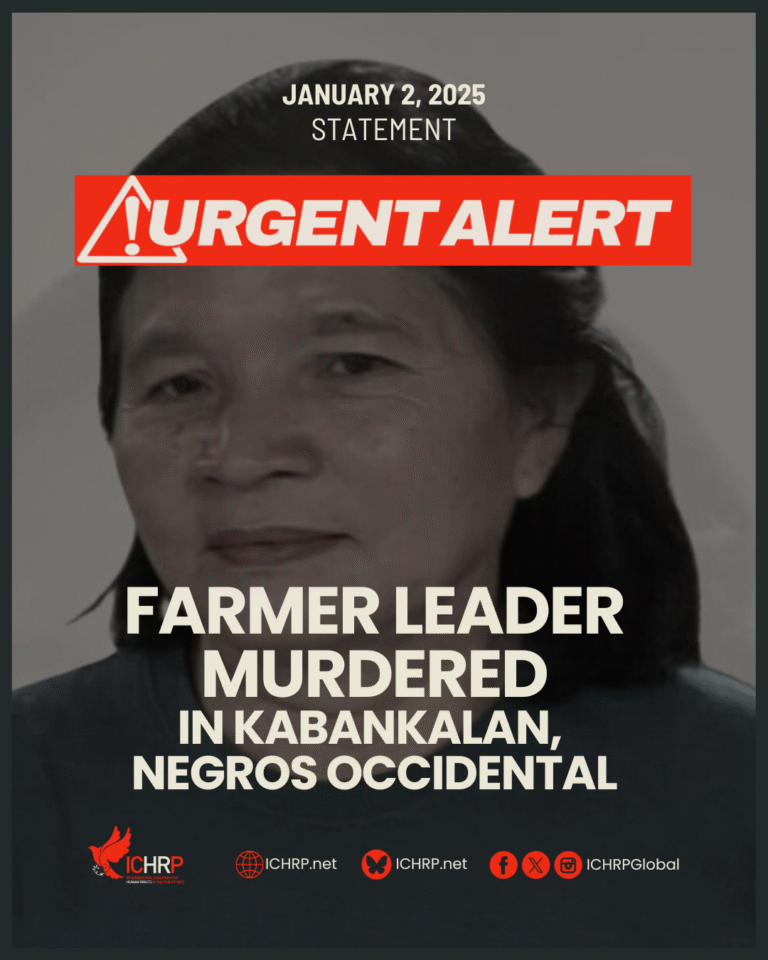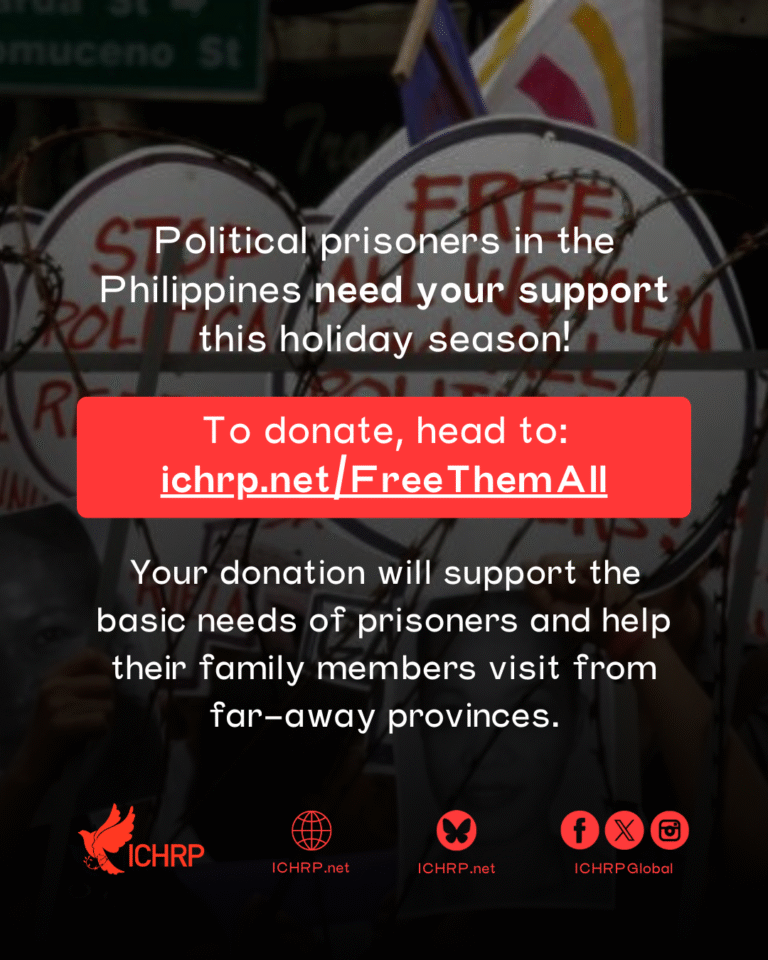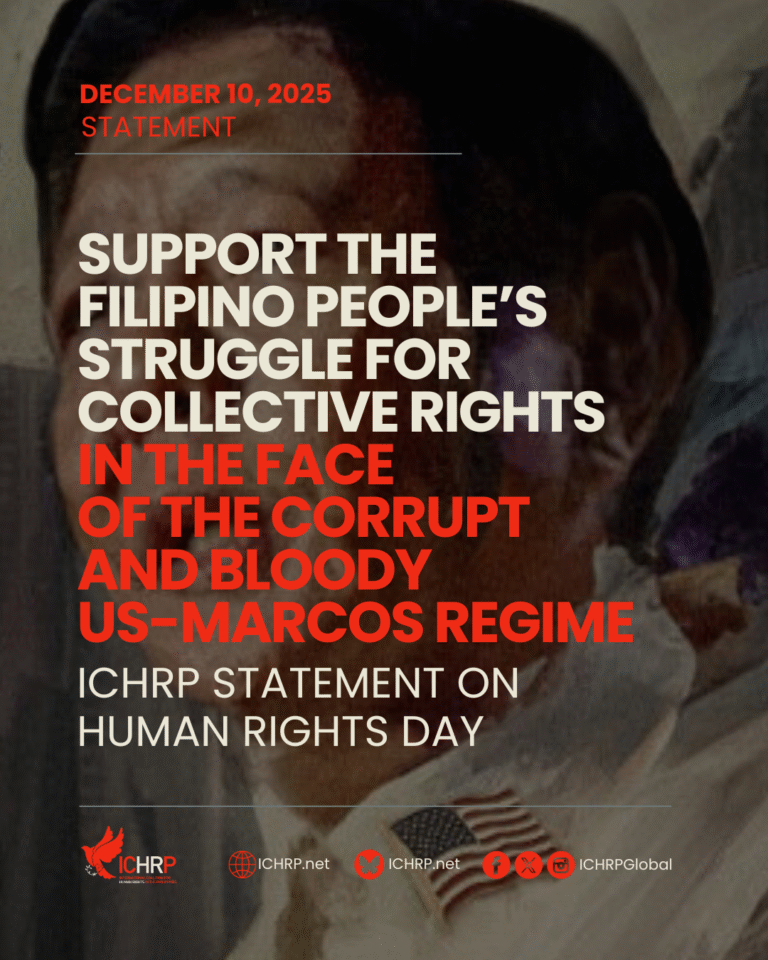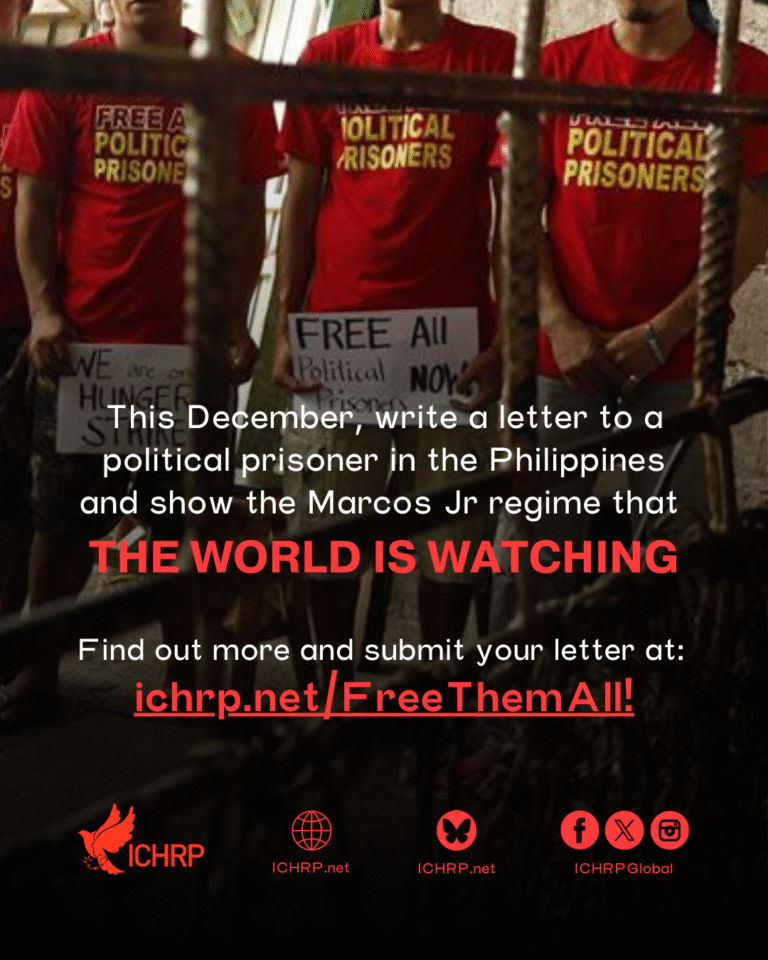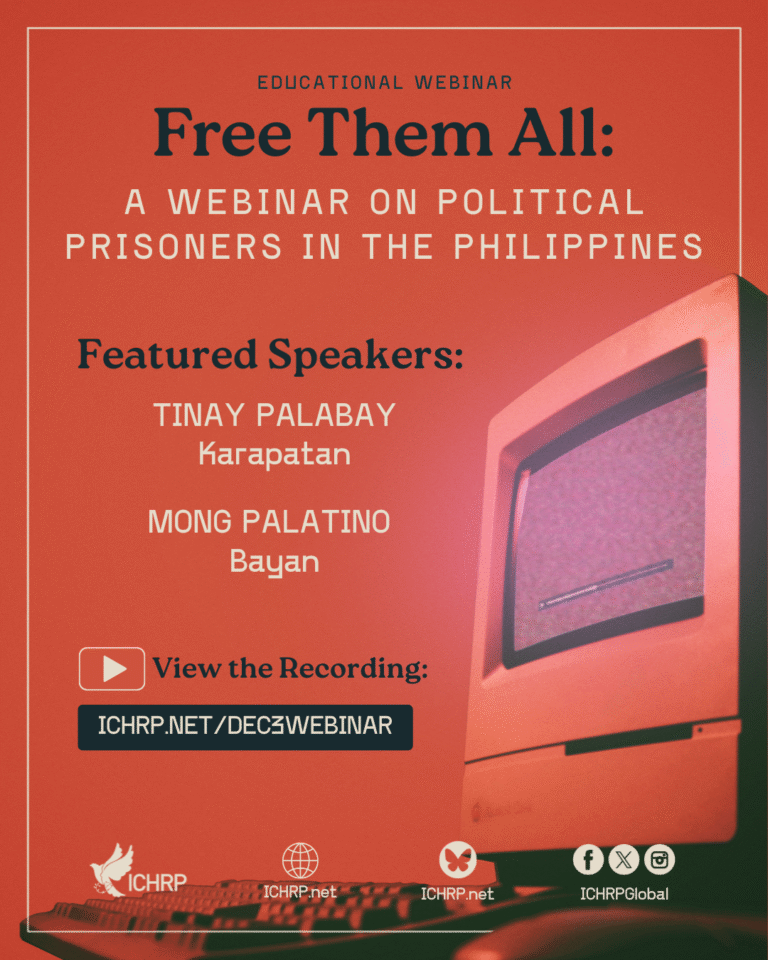ICHRP Statement on Human Rights Day
As 2025 comes to a close, Ferdinand “Bongbong” Marcos Jr. leads a regime in crisis. While the Marcos regime and its cronies profit from widespread corruption, it neglects the people during massive typhoons and leaves Filipinos to suffer. The Filipino people have responded with historic protests and growing clamor for genuine accountability for the corruption and human rights violations of ruling elites, including both the Duterte and Marcos camps.
Human Rights Situation
To entrench its rule and plunder of the people’s wealth, the Marcos regime conducts widespread fascist attacks on the Filipino people. The machinery of state terror that was built up during the US-Duterte regime remains in place. The Duterte-era fascist machinery, including the Anti-Terrorism Act, with its broad sweeping powers; the National Task Force to End Local Communist Armed Conflict (NTF-ELCAC); along with the Philippine National Police and the AFP, have been expanded by the Marcos regime. The budget allocation for the NTF-ELCAC for 2026 exceeds P8 Billion, a 314% increase over 2025. This massive increase furthers the mechanisms to crush dissent and to violate the civil and political rights of citizens, while adding a new tool for the Marcos regime in the dispensing of funds garnered through corruption.
Despite its many attempts to cleanse its international image, these continued fascist policies under Marcos have produced widespread human rights violations. Since the regime came to power in July 2022, it has orchestrated 134 extra judicial killings, used illegal aerial bombardment against rural communities affecting 57,000 individuals, and forced 48,000 individuals to evacuate their communities due to militarization. In addition, it has detained almost 700 political prisoners (163 arrested under the Marcos regime), with at least 93 of them elderly. Political detainees include 12 peace consultants of the National Democratic Front of the Philippines (NDFP), in violation of the GRP’s own Joint Agreement on Safety and Immunity Guarantees negotiated with the NDFP.
The United States Props Up the Marcos Regime
The Marcos regime and its crimes would not be sustainable without military, political, economic, financial, and diplomatic leadership from the United States and its allies. The recently released National Security Strategy of the United States of America defines a world order where American allies are defined as vassal states, and describes the “pivot to Asia” that projects the Philippines as a forward base in a war with China.
The US-Marcos Regime actively seeks further integration of the Philippines in US military alliances and an increase in deployments of US and foreign troops, as well as offensive weapons, in the country. US allies like Japan, Australia, New Zealand, and Canada are following the American model and pursuing their own military agreements with the regime. These measures erode Philippine independence and place it in the crosshairs of US-led militarism.
The Filipino People’s Surge of Resistance & International Solidarity
The Filipino people’s dissatisfaction with the current ruling system in the Philippines hit several peaks in 2025. The March ICC arrest of Duterte was the result of years of relentless struggle of his regime’s victims and their families, and the historic and ongoing protests against corruption displayed the people’s will for accountability and justice.
In our efforts to build solidarity support for the Filipino people’s struggle, ICHRP’s activities in 2025 further exposed the basis of the people’s ongoing resistance. The ICHRP International Observers Mission of the mid-term elections exposed widespread vote-buying, cheating, and heavy militarization of rural communities. Meanwhile the October International Solidarity Mission uplifted the people’s struggle for land in the face of foreign development aggression and highlighted by the Philippine government’s crackdown on solidarity with many cases of harassment and surveillance of foreign delegates.
Current Issues
The widespread attacks on human rights in the Philippines are part of the attempts of the US-backed Marcos regime to squash the Filipino people’s assertion of their collective rights.
In this context, we urge the international community and international institutions to stand with those who struggle for democracy and human rights in the Philippines. We call for continued pressure through international mechanisms and international solidarity to push the Philippine government to action. To this end, we call on:
- the International Criminal Court to continue its case against former President Duterte and pursue charges against his senior officials, who aided and abetted these war crimes.
- the Philippine government to stop the bombings in civilian communities and production areas in the countryside, and other grave violations of international humanitarian law.
- the Marcos government to respect all previously signed peace agreements with the NDFP, and release the nearly 700 political prisoners who remain in detention as one of many barriers laid by the Philippine government against a genuine peace process.
- foreign governments to suspend all international aid to the Armed Forces of the Philippines, Philippine National Police, and “counter-terrorism” programs which would train or place weapons in the hands of those committing these grave human rights violations. We call for the suspension of all international military support to the Marcos regime, including the tightening of German-Philippine relations and the continuing visiting forces agreements between the Philippines and the United States (VFA), Australia (SOVFA), New Zealand (SOVFA), Japan (RAA), and most recently, Canada (SOVFA).
Most importantly, this 2025 has seen ICHRP grow to over 80 member organizations across the world. We call on ICHRP members and people of good will to further join and expand ICHRP in the spirit of international solidarity.




